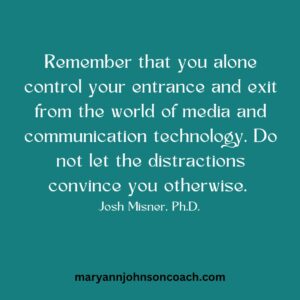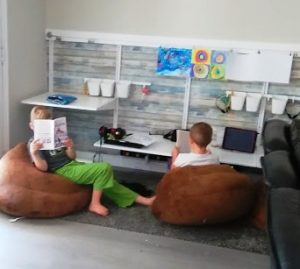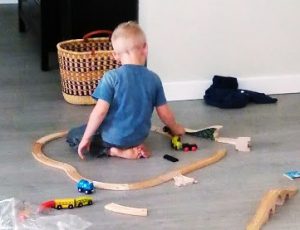 I Don’t Like Change.
I Don’t Like Change.
This has caused me some consternation as I have moved along life’s highway. Do you realize how much has changed since I was born in 1950!! It wasn’t such a big issue until I became an adult and technology exploded.
I can still recall our first computer. I was in my forties. It practically filled the small desk we had. I helped a friend with a project and sometimes I would sit in my chair so stumped I wanted to cry.
Now I am seventy-four and technology has taken wings. One thing that bugs me more than I can say is when I finally learn how to use a program or platform it changes. I know they do this for marketing and to stay relevant, but it throws me for a loop every time.
Even when using technology I’m reasonably familiar with, I occasionally have to stop and do some research. I google how to do this or that. Then I work to follow the directions which are often in Greek. I am not kidding here; it seems like Greek. Often I can work it out and feel a sense of relief and pride that I didn’t give up and can move forward with my project.
Sometimes I need to find someone who knows how to do what I don’t know how to do. Rarely, do I go to a store and get help. More often, I reach out to someone in my circle of friends or acquaintances that I know is good with tech. Almost always they can show me what I am missing and guide me to success. I’m always grateful.
Occasionally, no matter how diligently I try to follow directions or figure something out by myself I need to stop and pray because no matter how I have tried it isn’t clear to me. “God, what am I not seeing because I have clicked every button there is and it still isn’t working,” or something to that effect. Guess what. Almost always I have a thought to do this or that which resolves the problem. Sometimes I don’t know what I did and couldn’t repeat the process. LOL I need this help from outside of myself and it is a relief to know I am not on my own all the time.
A few weeks ago, I was forced to switch from Windows 10 to Windows 11. I know, you can’t believe I was still using Windows 10. I wasn’t willing to change because I didn’t want to have to figure out a new system. I was content with what I knew. But Windows 10 wasn’t going to be supported after a certain date. I had to move! I wasn’t happy about it. Weren’t things going just fine as they were? The whole idea freaked me out.
After the change, I did have problems. Some pages looked different. Menus were not the same. A couple of things required that I get my daughter involved and once a grandson. : ) But after a week I noticed how well I had adjusted and it felt as comfortable as the old 10 did. There were perks I didn’t know I was missing. I’m glad I made that scary change. Sometimes we have to be forced into that place. : )
This is how it is in parenting and life. We have to learn new ways as we go along, and it can feel hard and scary. But if we don’t panic or refuse to grow, we can do it. It is better to choose to make progress than to be forced into progress. : )
You can’t work with an eight-year-old as you did when they were two. It takes a new set of skills to talk to and direct an eleven-year-old than it does a sixteen-year-old. How you manage chores often stops working and you need to experiment with something new. Awesome relationships may suddenly be strained, and you aren’t sure what happened, when did the train go off the rails? We lose jobs and must find new ones. Maybe our current skill set needs a reboot. Possibly one of our children has taken a different path than we have designed for our family. Now what?
Sometimes our past surfaces and we find ourselves triggered, but we don’t know what triggered us or what to do about it. Has a child turned their back on you or the family? Are they suddenly distant? As our children grow, we might find we are unable to maintain our position with them. How do you work that out? Maybe a family member begins to show signs of anxiety or mental health issues. What, I am not prepared for that!
Life and parenting are not a straight and smooth road. I have walked both for decades always thinking it would get easier. It hasn’t. I returned to school when I was in my forties, with a seventh baby. My husband changed his profession a couple of times. I’m always called on to make personal changes, improve my way of being, and take responsibility for my responses. I must keep reevaluating relationships as my children grow and become parents and now, grandparents. No, the road never became straight or smooth, but by using what I learned as I went along, I didn’t just manage but thrived.
You can do the same. It will require work, purpose, and intention.
Here are a few things that have helped me along the way.
1. When you recognize that something isn’t working know it will require change and possibly information/resources you don’t yet have. Don’t panic.
2. You will need to take responsibility for your part of whatever the issue is and lay blame aside. Blame is usually an indicator that our perspective is off, or our story is incorrect.
3. When something has been working in your life or family and suddenly isn’t working, STOP. Be willing to look carefully at what has changed and experiment with something new. Ask yourself good questions and give yourself honest answers. It can feel aggravating, but nothing stays the same, things change. This will happen even if what was working was wonderful. Let your aggravation go and move forward.
4. Even when things are still working, you may need a reboot, so it continues to work well. If it feels like something is off, it probably is. Seek information and adjust.
5. Be open to whatever resources/information are required. I cannot tell you how many classes and books I have taken/read in the last forty years. It took me ten years to realize that I needed to grow and change how I viewed the world, children, and relationships, but once I jumped that hurdle, I ran down the track. I have used what I learned. I have grown as a person. I have become better. I have adjusted my way of being. It has all mattered!
I reached out to women and a few men when I needed guidance. I picked people who were where I felt I needed to be, whether how they managed chores or a relationship, how they worked through disappointment or grief, or how they upgraded their skills or managed their money.
Be willing to accept mentoring or counseling if needed. Last year I had to work on something in my relationship with Don. We had been married 52 years! I visited with a counselor three times. She helped me consider questions I hadn’t thought to ask myself. It made all the difference.
As you know I am a praying woman. This is not my last resort. I begin and end with it and use it often in the middle. Frankly, this has been the most reliable and useful tool in my ‘life’ toolbox, and I recommend it to you when you don’t know where else to turn or what else to do. It has never failed me.
If you are looking for help/resources, you will find them.
Making changes can be challenging just like using new technology, but if you trust yourself and avoid panic or blame, if you ask honest questions and give honest answers, stay the course, and seek reliable resources and information, you will get the help you need. You will be able to travel this road of life and parenting with greater success even if you are imperfect, and you are.
Remember that it took me ten years after I began living as an adult and parent to realize I needed to grow and change. Despite my slow start and the years it took to change, I did. My family suffered bumps and bruises, while I grew and became better. However, my children took my less-than-stellar example and have moved forward. They are growing and becoming better and have done it faster than I did. We are still here.
So, embrace change. Be willing to accept that you need to learn and grow. Manage the frustration that comes with change. Seek the help you need.



 In our world, we’re so used to having technology always with us that it’s challenging to be without it for even a short time. Technology, as wonderful as it is, can be
In our world, we’re so used to having technology always with us that it’s challenging to be without it for even a short time. Technology, as wonderful as it is, can be 
 I like Kerry Patterson. He is a great writer and from my era, so I relate to everything he writes. Back in September 2012, Kerry
I like Kerry Patterson. He is a great writer and from my era, so I relate to everything he writes. Back in September 2012, Kerry 
 Technology has been a boon in so many ways. I am amazed at how well versed my nine-year-old grandson is in the use of technology. I watch other kids, and I am equally impressed. But technology, for kids, also has downsides. Here is one that I regularly see with the children that I interact with often; they have a more challenging time filling their time when technology isn’t available.
Technology has been a boon in so many ways. I am amazed at how well versed my nine-year-old grandson is in the use of technology. I watch other kids, and I am equally impressed. But technology, for kids, also has downsides. Here is one that I regularly see with the children that I interact with often; they have a more challenging time filling their time when technology isn’t available.
 What if you went Screen-Free, as a family, for a WHOLE MONTH!! Do you think you could do it? Would your family go nuts? Would everyone crack up? Would the fighting increase? Yikes!! A whole month!!
What if you went Screen-Free, as a family, for a WHOLE MONTH!! Do you think you could do it? Would your family go nuts? Would everyone crack up? Would the fighting increase? Yikes!! A whole month!!
 The idea that we should be careful to keep our priorities right in terms of not letting lesser concerns get in the way of greater ones so that we find ourselves “in the thick of thin things,” is good advice.
The idea that we should be careful to keep our priorities right in terms of not letting lesser concerns get in the way of greater ones so that we find ourselves “in the thick of thin things,” is good advice.



 I thought you might be interested in how our three hours of tech free time went – you know those three hours when I was the worst grandma on the planet. Well, Mary and Jack both made progress on the books they are currently reading and Ben reconnected with the joy of playing engineer. There are tremendous benefits for families when there are clear boundaries for technology use. Why not make it the topic of your next family meeting. It can change your family!
I thought you might be interested in how our three hours of tech free time went – you know those three hours when I was the worst grandma on the planet. Well, Mary and Jack both made progress on the books they are currently reading and Ben reconnected with the joy of playing engineer. There are tremendous benefits for families when there are clear boundaries for technology use. Why not make it the topic of your next family meeting. It can change your family! am also interested in your technology challenges.
am also interested in your technology challenges. 